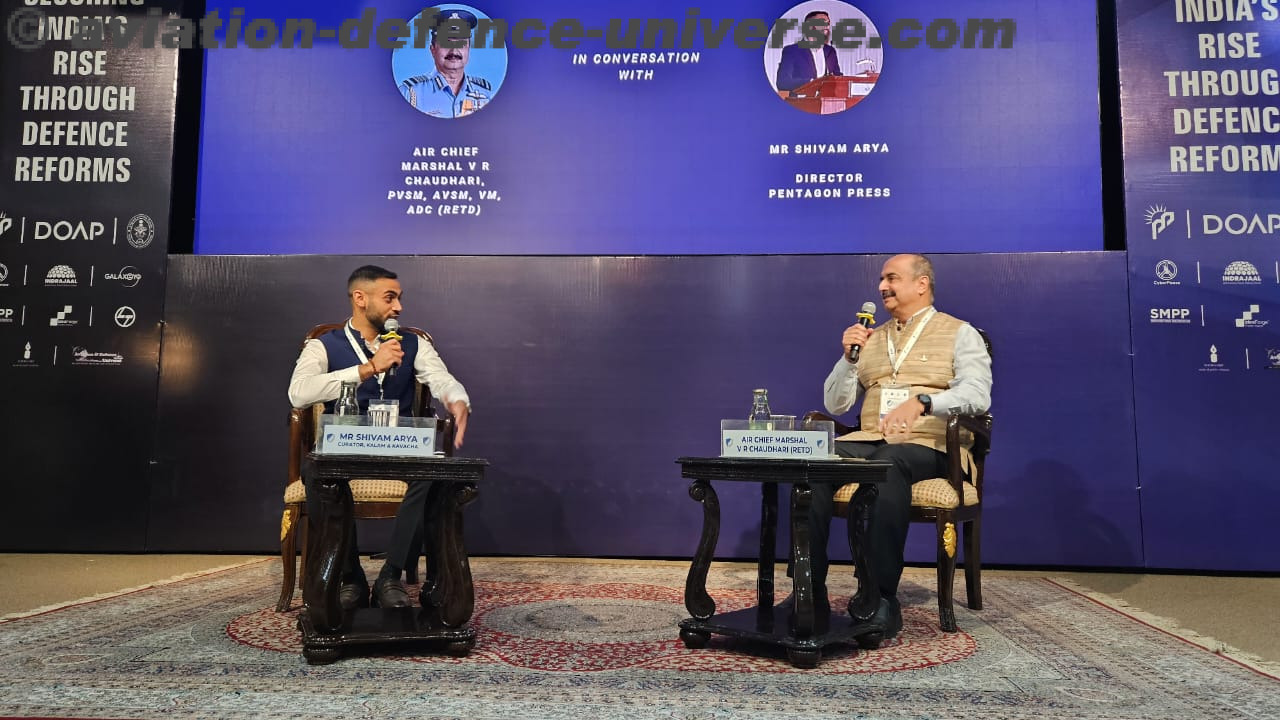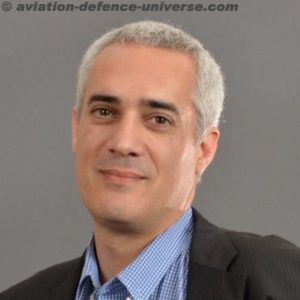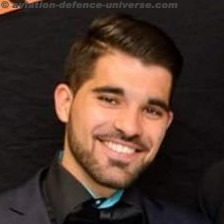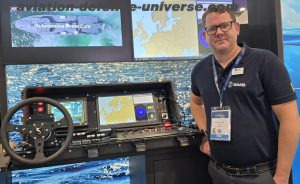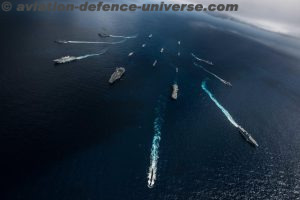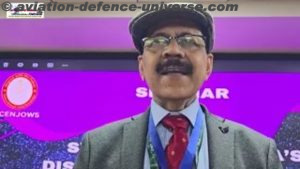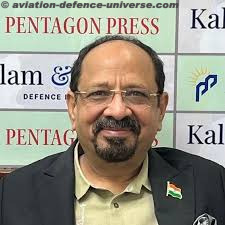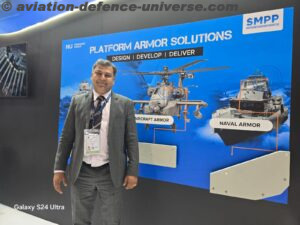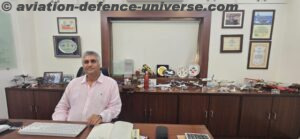- Insights from Thales’ CortAIx Labs CTO Christophe Meyer at Euronaval 2024
By Sangeeta Saxena
Paris/New Delhi. 18 November 2024. AI is shaping the future of maritime defence, providing advanced tools for safeguarding the seas and responding to evolving threats. By enabling automation, improving decision-making, and enhancing operational efficiency, AI is not just an asset but a strategic necessity for modern naval forces. In the coming years, the fusion of AI with naval systems will define the next era of maritime strategy and defence.
At Euronaval 2024, one of the world’s largest naval defence exhibitions, ADU had the opportunity to speak with Christophe Meyer, CTO of CortAIx Labs at Thales. Meyer shared insights into the company’s innovative approach to artificial intelligence (AI) in defence, outlining the applications, developments, and challenges faced in integrating AI into maritime and military systems.
ADU. Could you start by introducing yourself and the scope of your work at Thales?
Christophe Meyer. Certainly. I’m Christophe Meyer, the CTO of CortAIx Labs at Thales. At Thales, we have structured our AI efforts into three main pillars. First is the CortAIx Labs Sensors, which focuses on developing AI algorithms integrated directly into equipment like sensors and actuators. This division has around 400 specialists. The second pillar is the CortAIx Labs Factory, with about 100 people dedicated to accelerating the integration of AI into product lines through rapid development and agile methodologies. Finally, we have the CortAIx Labs , where I lead the R&D efforts. This team includes around 150 experts specializing in AI, system architecture, and cybersecurity to ensure trustworthy implementation of AI across Thales’ projects.
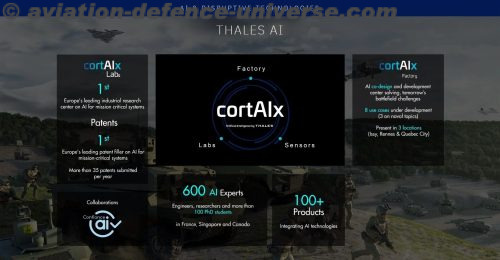 ADU. What specific AI technologies is Thales demonstrating at Euronaval in the maritime domain?
ADU. What specific AI technologies is Thales demonstrating at Euronaval in the maritime domain?
Christophe Meyer. In maritime operations, AI plays a crucial role in processing vast amounts of data from sensors. For instance, in maritime patrol, AI assists radar operators by filtering and highlighting pertinent information from the massive influx of sensor data, making it easier and faster for operators to identify potential threats without overwhelming them.
In electronic warfare, AI can be selectively engaged by operators. It doesn’t make decisions autonomously but enhances the operator’s situational awareness by pointing out critical aspects that might need attention, which is essential in a high-pressure combat environment.
ADU. How does Thales address concerns about trusting AI in military applications?
Christophe Meyer. Trust in AI is vital, especially in military contexts. We offer systems where AI can be switched on or off at the operator’s discretion. This approach ensures that the operator remains in control and can choose to rely on AI insights or not, depending on the situation. For example, during complex tracking tasks, AI might suggest the presence of multiple targets, offering additional information to the operator without overriding their judgment.
ADU. You mentioned Machine Learning Operations (ML Ops) earlier. How is this approach applied in Thales’ defence systems?
Christophe Meyer. In civilian markets, continuous learning allows systems to integrate new information constantly. However, in military scenarios, this could be risky since adversaries might introduce false data to manipulate the system. Our ML Ops approach involves validating new data before integrating it into the system, often using simulations to verify information during naval operations. This method prevents potential exploitation and ensures the integrity of the AI system.
ADU. With increasing cyber threats, how does Thales ensure the robustness of its AI models?
Christophe Meyer. Since the rise of deep learning about a decade ago, we established a dedicated team for what I call “friendly hacking.” These experts in both AI and cybersecurity test our AI systems’ resilience against manipulation. For example, even the most advanced image recognition algorithms can be easily fooled by altering a few pixels. Our team conducts ethical hacking to identify such vulnerabilities, ensuring our AI models are robust and less susceptible to adversarial attacks.
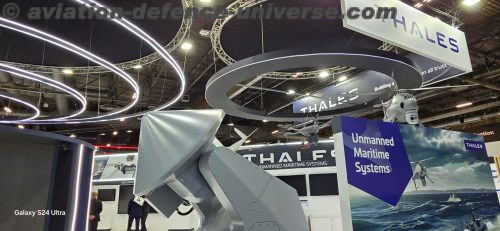 ADU. Thales recently participated in challenges by the French Ministry of Defence (MOD). Could you tell us about that?
ADU. Thales recently participated in challenges by the French Ministry of Defence (MOD). Could you tell us about that?
Christophe Meyer. Yes, the French MOD organized challenges to test teams on extracting knowledge from AI models, essentially evaluating data theft risks. Our team won this challenge, showcasing our expertise in safeguarding sensitive data used in AI training. Another challenge involved detecting fake images generated by AI, where we developed methods to differentiate between real and AI-generated visuals. It’s a crucial capability in today’s information warfare landscape.
ADU. You also mentioned advancements in drone swarm technology. How is AI utilized in this area?
Christophe Meyer. Swarm drones represent a significant leap in autonomous operations. The challenge lies in providing a level of autonomy to these drones, especially when communication with the operator is lost. AI helps drones in the swarm adapt, reorganize, and continue their mission even if some units are compromised. This technology is platform-agnostic, meaning it applies to aerial, maritime, and terrestrial swarms, with the underlying algorithms remaining consistent across domains.
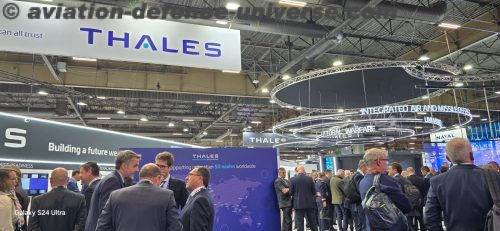 ADU. What are the current and future prospects of integrating AI into Thales’ products?
ADU. What are the current and future prospects of integrating AI into Thales’ products?
Christophe Meyer. Currently, around 100 Thales products already incorporate AI, with an additional 600 identified as potential candidates for AI integration. One prominent example is the Talios targeting pod on the Rafale fighter jet, which uses AI to enhance its capabilities. However, integrating AI into defence systems involves rigorous validation and qualification processes to meet the French MOD’s standards before deployment. In this insightful discussion, Christophe Meyer highlighted Thales’ multifaceted approach to integrating AI across defence systems, focusing on building robust, reliable, and user-controllable AI technologies. As AI continues to evolve, Thales remains at the forefront, pushing the boundaries of innovation in maritime and military applications while prioritizing trustworthiness and security.
As told to Sangeeta Saxena












